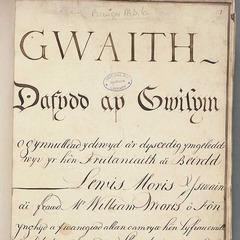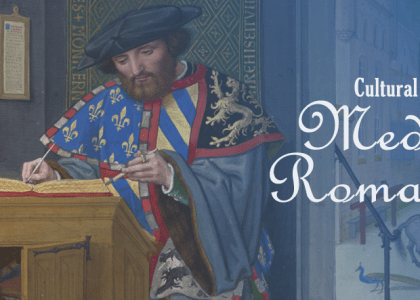
Dafydd ap Gwilym, (born c. 1320, probably at Brogynin, Cardiganshire, Wales—buried c. 1360, Strata Florida, Cardiganshire), poet generally considered one of the greatest figures in Welsh literature. He introduced into a formalistic poetic tradition an authenticity, freshness, and naturalness hitherto unknown.
His awdlau (odes) and cywyddau (rhymed couplets) show that he was trained in the Welsh bardic art and connect him historically with the native “poets of the princes.” With a certain use of poetic conventions as well as of looser poetic constructions and vocabulary, it was probably reflecting the influence of the troubadours and wandering scholars and an innovative poet who was responsible for popularising the metre known as the → cywydd and first to use it for praise.
Outstanding poems that elaborate descriptions of the beauties of nature and of love, a freedom and lightheartedness that Dafydd ap Gwilym introduced into → bardic poetry influenced succeeding generations of Welsh poets.
It is believed that about one hundred and seventy of his poems have survived, though many others have been attributed to him over the centuries. His main themes were love and nature. The influence of wider European ideas of courtly love, as exemplified in the troubadour poetry of Provençal, is seen as a significant influence on Dafydd’s poetry.


